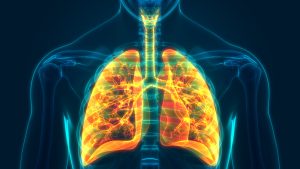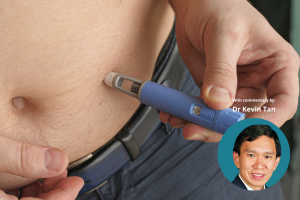Leading research-driven biopharmaceutical company, Boehringer Ingelheim, recently showcased a thought-provoking art collection named The Unwearable Collection™ at the World Congress of Dermatology in Singapore.
This collection, designed in collaboration with renowned artist Bart Hess, aims to raise awareness about the physical and emotional challenges faced by individuals living with generalized pustular psoriasis (GPP), a rare skin disease.
The Unwearable Collection™ draws inspiration from real-life GPP patients

The Unwearable Collection™, previously introduced in the United States last year, made its international debut in Singapore as part of Boehringer Ingelheim’s dedicated efforts to educate and engage audiences about GPP. Inspired by personal stories shared by GPP patients, Bart Hess skillfully crafted each artwork using unconventional materials such as glass shards, paper, knives, and razor blades. The collection reflects various aspects of the patients’ journeys, including the physical pain, isolation, the life-threatening nature of the disease, and the intensity of flare-ups.
“GPP is an under-recognized and under-supported rare disease. Boehringer Ingelheim’s goal with “The Unwearable Collection™ is to make the suffering of GPP patients visible to a broad audience. The collection symbolizes the devastating and unpredictable impact of GPP – both physically and emotionally. As a rare disease, GPP is often misdiagnosed and undertreated. It is our hope that by raising awareness around GPP more patients can benefit from better treatment”, said Dr Joerg Kreuzer, Head of Medicine, ASEAN, South Korea, Australia, and New Zealand, Boehringer Ingelheim.
The Fifth Mannequin

In partnership with the Fashion Institute of Technology (FIT) in New York, Boehringer Ingelheim unveiled the fifth mannequin of the Collection at the World Congress of Dermatology Singapore 2023, where it was displayed from July 3 to July 8. This particular mannequin symbolizes the mental health impact of GPP symptoms, characterized by the unpredictability of flares, which presents a significant challenge for individuals in managing their personal planning and daily routines while living with GPP.
As shared by the patient, “When I was first diagnosed and the GPP was so bad all over my entire body, I could not pick up my daughter. Even if she touched me, I would move away because sometimes just lightly brushing up against different parts of my body hurt so badly.” The symptoms of GPP during a flare can lead to social stigma for patients, causing them to withdraw from family and friends or face challenges with intimacy in their relationships.
What is GPP?
Unlike the more common plaque psoriasis, GPP is a rare and potentially life-threatening skin disease characterized by severe episodes of flare-ups. These flares significantly disrupt the quality of life for patients and may even require hospitalization due to life-threatening complications. According to Dr Colin Theng, President of the Psoriasis Association of Singapore and Councillor with International Psoriasis Council, there are about 40,000 patients with psoriasis in Singapore, of which less than 1% of these patients have GPP.
Due to its rarity, GPP often goes misdiagnosed, with healthcare professionals mistaking it for the more prevalent plaque psoriasis. On average, it takes five years for patients to receive an accurate diagnosis, resulting in suboptimal or incorrect treatment during that time. GPP symptoms are frequently misunderstood as contagious infections or plaque psoriasis, leading to further delays in appropriate care.
Emmylou, IFPA Ambassador and patient living with GPP for 20 years said, “Living with GPP is a psychological, social, and emotional torture. Patients not only endure the excruciating physical pain when flares occur, but we also tend to withdraw from society to avoid being discriminated against. Often, our condition is misdiagnosed and not given the proper treatment, which can lead to complications that may even result in death.”
The goal of this collection is to showcase what life is like for people living with GPP and raise awareness about the symptoms that characterize the condition. By increasing awareness about the challenges and effects of GPP, the aim is to foster understanding among the general public, patients, healthcare workers, caregivers, and family members. The hope is to support better care and resources for people with GPP, leading to earlier diagnosis, improved treatment, and a higher quality of life.












